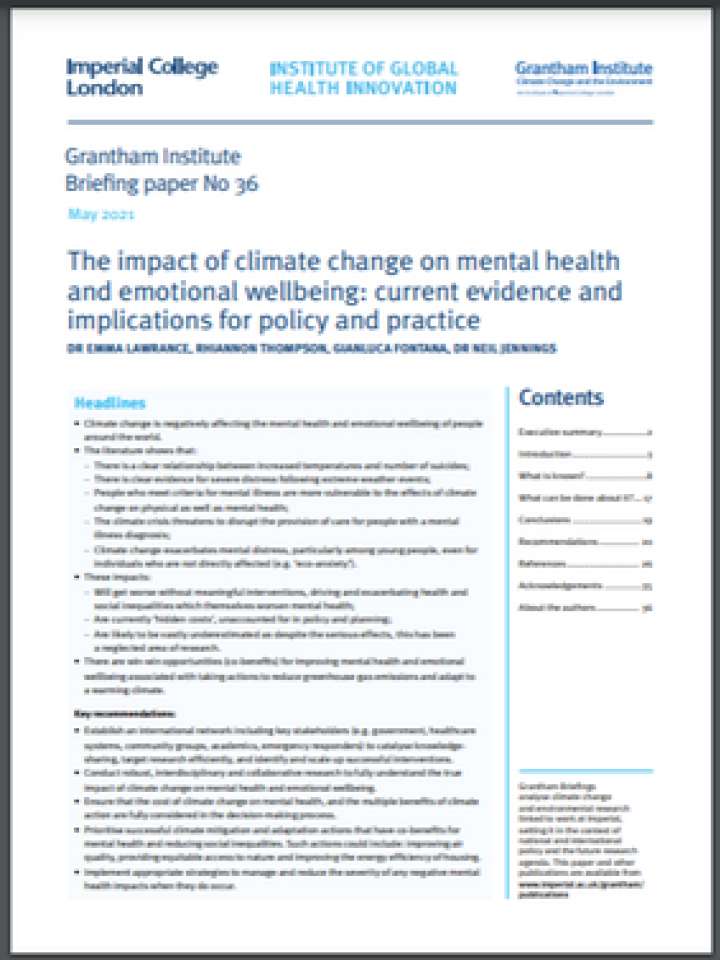The impact of climate change on mental health and emotional wellbeing: current evidence and implications for policy and practice
This publication assesses the current evidence for the impact of climate change on mental health and emotional wellbeing. Climate change is negatively affecting the mental health and emotional wellbeing of people around the world. The literature shows that there is a clear relationship between increased temperatures and number of suicides and there is clear evidence for severe distress following extreme weather events. Climate change exacerbates mental distress, particularly among young people, even for individuals who are not directly affected (e.g. ‘eco-anxiety’). These impacts will get worse without meaningful interventions, driving and exacerbating health and social inequalities which themselves worsen mental health. • There are win-win opportunities (co-benefits) for improving mental health and emotional wellbeing associated with taking actions to reduce greenhouse gas emissions and adapt to a warming climate.
Key recommendations:
- Establish an international network including key stakeholders (e.g. government, healthcare systems, community groups, academics, emergency responders) to catalyse knowledgesharing, target research efficiently, and identify and scale up successful interventions.
- Conduct robust, interdisciplinary and collaborative research to fully understand the true impact of climate change on mental health and emotional wellbeing.
- Ensure that the cost of climate change on mental health, and the multiple benefits of climate action are fully considered in the decision-making process.
- Prioritise successful climate mitigation and adaptation actions that have co-benefits for mental health and reducing social inequalities. Such actions could include: improving air quality, providing equitable access to nature and improving the energy efficiency of housing.
- Implement appropriate strategies to manage and reduce the severity of any negative mental health impacts when they do occur.
Explore further
